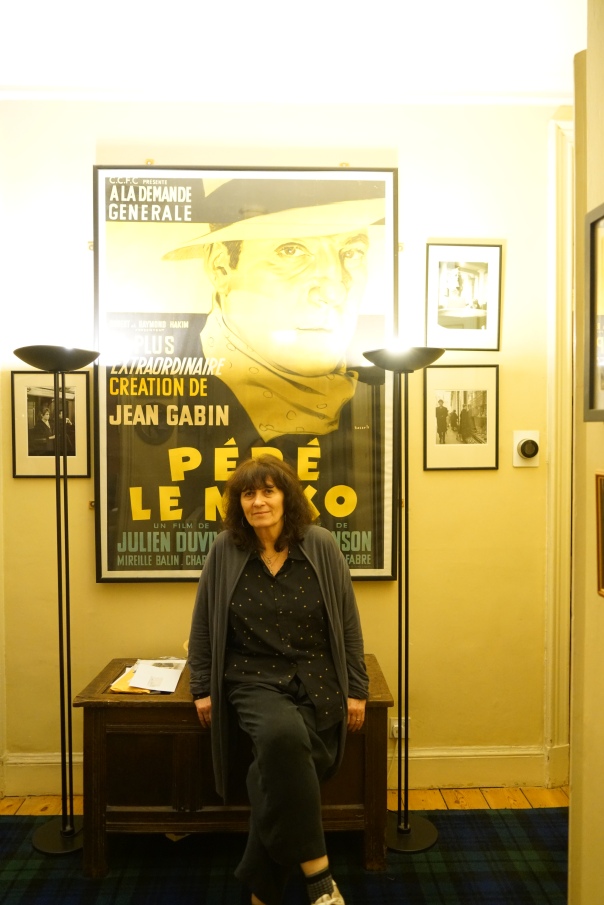
Below is the second part of a two-part podcast with Ginette Vincendeau on Jean Gabin, which picks up a little before the first part ended. Once Gabin returned to top stardom in France in ´54/55, what values did he represent/signify? Does he mean something different in France than abroad? What is it and why? Is it true he didn´t make any good films after ‘Touchez-pas au grisby’ and ‘French Can Can’? What is the significance of him being cast with co-stars so much younger than himself like Bardot and Danièle Delorme? What does ´La France Gabinisée´and ‘La Gabinisation de la France’ mean. I ask the questions but it is Ginette´s answers that fascinate and illuminate.
I am grateful to Will Straw who brought to my attention the special issue of Schnock which featured Gabin and which asserted, in ways that are visualised below, that ´Gabin´means something different at home and abroad and that at home he signifies a particular type of Frenchness. This lead me to ask Ginette about it and she brought up Jean-Laurent Cassely´s book, No fake: Contre-histoire de notre quête dáuthenticité, and the concept of ‘Gabinisation’, as well as Ginette´s noting of how often ‘Gabin’ is turned into a verb: Gabinise, Gabiniser…
Will also brought up the interview with Nicolas Pariser in the October 2019 issue of Cahiers du cinéma, which I ask Ginette to comment on in the podcast:

My rough translation is as follows: ‘Those films from the 50s where Gabin tells off young people are cinema´s absolute evil. In Rue des prairies, he bawls out Marie-José Nat because she does nothing and wakes up late. I have a bit of an extreme thesis: I think May ´68 was because of Gabin. He became unbearable at a certain moment. The cinema I love exploded that reactionary schema. And astonishingly we find nostalgia for 50s cinema were the old explain life to the young in quite a few contemporary French Films’
I am also grateful to Nicky Smith for noting the difference in ages between Gabin and his female co-stars, and how this trope recurred in so many films. This lead to an interesting discussion with Ginette on this issue where Ginette notes how strong that trope is in French cinema in general, can be seen in the thirties in films like Arlette et ses papas (Henri Roussel, 1934) , and continues on quite late and in various cultural forms(e.g. Serge Gainsbourg Lemon Incest).
You can follow up on all of these issues through Ginette´s books below:
Furthermore, I have blogged on some of Gabin´s later films, some mentioned in the podcast, and if you want to pursue that further you can click on the hyperlinks below.
Articles:
Voici le temps des assassins/ Deadlier than the Male (Julien Duvivier, France, 1956)
Miagret tend un piège (Jean Delannoy, 1958)
Maigret et l’affaire St. Fiacre (Jean Delannoy, France, 1959)
Le clan des Siciliens/The Sicilian Clan (Henri Verneuil, France/USA, 1969)
Le chat (Pierre Granier-Deferre, France, 1971)
Le tueur/ Killer (Denys de la Patellière, France/Italy, 1972)
On clips from:
Touchez-pas au grisbi (Jacques Becker, 1954)
Razzia sour la chnouf (Henri Decoin, 1955)
French Can-can (Jean Renoir 1955)
José Arroyo




















